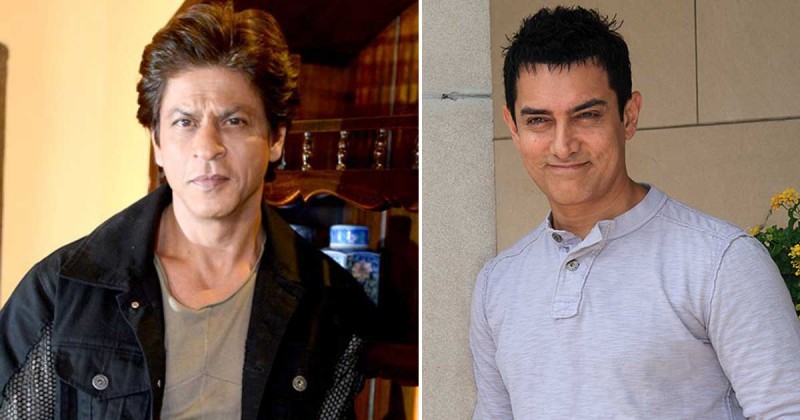
Bollywood is renowned not only for its captivating movies but also for the fascinating dynamics that frequently occur off-screen. After Shah Rukh Khan won the Filmfare Award for Best Actor in "Dilwale Dulhania Le Jayenge" (1995), a particularly intriguing episode took place. Aamir Khan, a well-known actor who is known for having strong opinions, decided to skip the ceremony out of protest and insisted that he was deserving of the prize for his work in "Rangeela" (1995). This incident not only brought to light the rivalry between two major figures in Indian cinema, but it also raised important issues regarding the objectivity and fairness of awards in the industry.
Shah Rukh Khan won the Best Actor prize at the prestigious Filmfare Awards in 1996 for his performance as Raj in the legendary movie "Dilwale Dulhania Le Jayenge." Khan's reputation as the "King of Romance" was cemented by the success of the film, which appealed to audiences everywhere. His charismatic performance was well received, and he appeared to be the ideal candidate for honors.
But Aamir Khan, who was well known for his commitment to his craft and his unwavering morals, had a different opinion. He felt that his performance as Munna in "Rangeela" was equally worthy of the honor. Aamir's engaging and endearing performance enthralled viewers and won him praise from the critics. Aamir began his personal boycott when Shah Rukh Khan was given the award and he decided to skip the ceremony in retaliation.
The fairness and subjectivity of awards are a topic of ongoing discussion in the film industry, which was brought to light by Aamir Khan's decision to boycott the Filmfare Awards. Although awards are given to honor excellence, judging performances is frequently a subjective process influenced by individual tastes, current fashions, and even politics within the industry. Aamir's protest brought to light the resentment and frustration that can develop when artists believe their work has been overlooked or overshadowed.
Two of Bollywood's most prominent actors, Aamir Khan and Shah Rukh Khan, clashed, adding fuel to the fire. Their rivalry had already generated a lot of rumors, and Aamir's boycott appeared to fan the flames even more. The media and fans closely followed the developments, turning it into a sensational story that muddled the distinctions between recognizing differences on a personal level and doing so on a professional level.
The boycott of Aamir Khan had a significant effect on the business. It sparked discussions about biases in the workplace, the importance of recognizing diverse talents, and the transparency of award processes. Aamir's choice sparked a wider discussion about the function and significance of accolades in the career of an artist.
Aamir Khan remained distant from popular award shows in the years that followed, occasionally voicing his concerns about their impartiality. Although he chose not to attend, his performances persisted in being well received by both critics and audiences, supporting the notion that an artist's worth extends beyond awards and recognition.
Aamir Khan's decision to skip the Filmfare Awards following Shah Rukh Khan's victory for "Dilwale Dulhania Le Jayenge" was a pivotal event in Bollywood history. It wasn't just about winning an award; it also involved a larger discussion about the legitimacy of the system of recognition and an artist's conviction and integrity.
This episode made clear how crucial it is to promote a just and open environment if you want awards to be meaningful. It also demonstrated the responsibility that comes with being a public figure because an artist's actions frequently reflect broader viewpoints and have an effect on the entire industry.
Even though Aamir Khan's protest was motivated by a personal conviction, it sparked a discussion that echoed the sentiments of many creatives who occasionally feel their efforts go unappreciated. It serves as a constant reminder that, beyond the glitz and glam of the red carpet, what truly defines cinema is found in the tales it tells and the feelings it arouses. This truth transcends awards and is a testament to the strength of artistic expression.
The Remarkable Reunion of Raju the Elephant and Tanuja